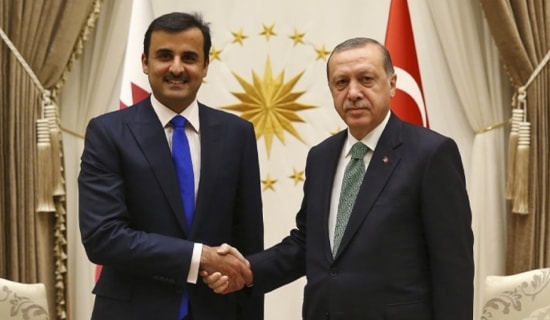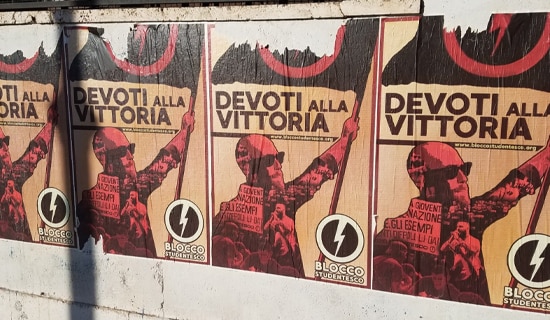During the recent conflict in Gaza, the divisions between the two camps in the Arab world were reflected in the terminology used by the Arab satellite news channels. Al-Jazeera, which is sponsored by Qatar and is identified with the Hamas-Iran-Syria axis, used the term "martyr" ("shahid") for those killed in Gaza; in contrast, Al-Arabiya TV, which is Saudi-owned, refrained from using this term.
Nasrallah: Al-Arabiya – "The Hebrew" Channel
Al-Jazeera TV director Ahmad Al-Sheikh, responding to criticism of his station's use of the term "martyr," told the AFP's Arabic service: "Instead of asking why we call them martyrs, we say: Stop the killing of [the Gazans], and then there will be no martyrs." He said that Al-Jazeera is objective, pointing out that it gives air time to Israeli spokesmen, and also claimed that it is the only channel to give a realistic picture of the Gaza fighting because the other channels all fear Israel.[1]
On the other side are those accusing Al-Arabiya TV of bias. For instance, Hizbullah secretary-general Hassan Nasrallah criticized Al-Arabiya in one of his speeches, calling it biased against the Gazans and, in a pun on its name, said it should really be called "the Hebrew" (Al-'Ibriya). Also, IslamOnline reported on an anti-Al-Arabiya campaign launched by Saudi "Internet activists" who complained, inter alia, that the channel did not call Gazans killed in the conflict "martyrs."
Al-Arabiya Director: Al-Jazeera Is Propaganda
Al-Arabiya director 'Abd Al-Rahman Al-Rashed, who is former editor of the London daily Al-Sharq Al-Awsat, told the Saudi daily 'Okaz: "Al-Arabiya is a professional news channel. The others [i.e. Al-Jazeera] have made their channel [into a means for] mobilization, and propagandistic. There is a huge difference between a news channel and a channel that mobilizes and that pushes people towards a [pre-]set goal, disregarding the facts as well as professional ethics and principles."
Al-Rashed stated that Al-Arabiya gives the full picture, and that any viewer can understand on his own that a great crime is being committed against the Palestinians. He added, though, that defending the Palestinians should not come at the expense of the Egyptians and the Saudis, for the benefit of Iran or others.[2]
In an interview with the Algerian daily Ennahar El-Djadid, Al-Jazeera news host Khadija Ben Guena responded obliquely to Al-Rashed's criticism: "Al-Jazeera has been subjected to some criticism for calling the martyrs in Gaza 'martyrs' instead of 'the killed.' I think that only the Gaza victims deserve this appellation – if these helpless children, women, and civilians aren't martyrs, then who are? I reject any equivalence of killer and killed. Should we make the Palestinian, who is occupied by force, and the Israeli, who attacks, equivalent? This is both illogical and unacceptable.
"As for those who say that Al-Jazeera is 'a channel that mobilizes' – well, I welcome that. It is an honor for this channel, which has mobilized Arab and world public opinion, and has shown the world the extent of the massacres and the destruction. Since its founding, Al-Jazeera has called the dead in Palestine martyrs; that is our opening position, and everyone knows it."[3]
Saudi Columnist: It Is Un-Islamic To Call Someone a "Martyr"
The debate also spilled over into the opinion pages of the Arabic press. Hussein Shobakshi, a Saudi columnist for the Saudi-owned London daily Al-Sharq Al-Awsat, wrote on January 12 that it was un-Islamic for human beings to designate anyone as a martyr, because it is the prerogative of Allah alone to decide who is a martyr and who is not: "One of the strangest peripheral battles underway in various arenas, as a consequence of the Israeli massacres against the victims in the Gaza Strip, is how these victims are referred to and classified, and the [supposed] necessity of calling them 'shahid' (martyr) and 'shuhada' (martyrs).
"This provides an entrance for the use of fiercely worded accusations of treason and apostasy against anyone using the terms 'victims' or 'killed' [instead of 'martyrs'] for Gaza residents who died in the terrorist Israeli army's savage and crazed attacks. The strange thing is that any Muslim who reads the noble Quran will find not a single noble verse that describes 'those killed for Allah's sake' as 'martyrs.'
"There are a large number of verses in which the expression 'killed' is used to describe Muslims who fought for the sake of Allah, even when they are fighting against infidels. Quran 3:157-158 says: 'If you are killed for the sake of Allah, or die, forgiveness and mercy from Allah are better than what they could amass. And if you die or are killed, you will be gathered unto Allah.' In the same chapter, Allah says (Quran 3:169): 'Do not consider those who were killed for the sake of Allah dead; no, they are alive, and receive sustenance from their Lord.'
"Quran 4:74 says: 'Let them fight for the sake of Allah, those who sell this life for life in the hereafter. Those who fight for the sake of Allah, whether they are killed or victorious, will be given a great reward.' And Quran 47:4 says: 'When you meet the unbelievers (in battle), smite their necks until you have subdued them, then bind fast (the prisoners); then set them free or ransom them, until the war abates. Had Allah desired, He would have defeated them (Himself), but this was to put you to the test by means of others. Those who are killed for the sake of Allah, their actions will not be in vain.'
"[In addition,] there are many places in the noble Prophetic Sunna… that demonstrate that the noble Prophet did not describe any of those who were killed in the various confrontations as martyrs. He would say: 'So and so fell,' and not 'so and so was martyred.'
"A saying from [the early traditionist] Ibn Mas'ud has been handed down in this matter: 'Beware not to say that so-and-so died as a martyr or that so-and-so was killed as a martyr. There are those who fight to take booty, there are those who fight to make a name for themselves, and there are those who fight to see if they are true jihad fighters.'
"Then there is the venerable scholar Al-Qurtubi, who is famous for his commentary on the Quran. His father was killed when the enemy attacked on the third of the month of Ramadhan, 627h. [1230 CE]. Al-Qurtubi consulted one of the well-known sheikhs, who said that his father should be considered as someone who was killed in battle. But even Al-Qurtubi was not so audacious as to describe his father as a martyr.
"Then there is the important opinion of [the late Saudi senior cleric] Sheikh Muhammad bin 'Uthaymin, who said on this topic: 'We do not say about one who is killed in jihad that he is a martyr, even when [the fighting] was between Muslims and infidels, since the Prophet said "Allah knows best regarding one who is wounded [and dies] for His sake; only on Judgment Day [will we know], when his wound will bleed. The color will be the color of blood, and the scent will be the scent of musk.' [Ibn 'Uthaymin continued:] The expression 'Allah knows best regarding one who is wounded [and dies] for His sake' means that we have no knowledge of this, just that we hope that he will be [accepted as] as martyr.' Ibn 'Uthaymin added: 'Thus the person who is killed gains nothing by our calling him a martyr. If Allah considers him a martyr, then he is a martyr, whether we say it or not. And if he is not a martyr, then our calling him one does not benefit him.'
"The meaning of this is clear. The issue [of martyrdom] is Allah's sole prerogative, and no human has a say in it. The application of names and classifications without any [true religious] authority [backing these up] is what has embroiled the Arab world [in error], to the point where a city like Beirut now has a martyr for every street, every sect, and every party, in an unruly and chaotic manner.
"This is [also] what made it possible to give a terrorist leader the title of 'sheikh,' [and the titles of] 'the honorable' and 'the learned' to the moguls of extremism.
"The Palestinian situation is extremely important and sensitive. There is no room for stirring up even more division and for undermining concentration on support for Palestine and its residents… [through] side battles and playing on people's feelings and emotions. What is needed is the unification of all efforts in order to convey the truth about the bloodshed and the killing that are being perpetrated on the ground by the fiercest terrorist force in the world today – Israel."[4]
Al-Hayat Columnist: Those Who Don't Say "Martyr" Are Accused of Being Agents of the West
On the same day, Hasan bin Salim wrote a very similar article in the other London-based Saudi daily, Al-Hayat, in which he stated that many people are indignant when they hear the media referring to "victims of the aggression" or "the killed" instead of "the martyrs." But he adds: "If we want to lay out a true yardstick for this issue, then we must approach it in accordance with the shari'a view, and not in accordance with the popular emotional view.
"There are a number of hadith, texts, and fatwas that forbid calling anyone a martyr, whoever this may be, apart from those whom Allah and His prophet described as such.
"When the Prophet described to the Companions, in a sermon, what happened to the commanders of the famous Mu'atta raid, he said: 'Zayd took up the banner, and fell; then Ja'far took up the banner, and fell; then 'Abdallah Ibn Rawaha took up the banner, and fell. Then Khaled bin Al-Walid took up the banner without having been appointed commander, and he was granted a victory.' [As he said this, the Prophet's] eyes shed tears.
"The Prophet didn't describe any of his commanders as having been martyred, as we tend to do today. [Instead,] he said: Zayd fell, and Ja'far fell, and 'Abdallah fell. Is not the Prophet a good model for us?
"The Companions followed the Prophet in this. Ibn Al-Mubarak and Ibn Abi Shayba related that Mudrik bin 'Awf Al-Ahmasi said: I was with 'Umar when a messenger from (the famous Companion) Al-Nu'man Ibn Muqarrin arrived. 'Umar asked him about people, and he said: so and so and so and so fell, and so did others whom I don't know. 'Umar said: But Allah knows them. He [i.e. Al-Nu'man] said 'so and so and so and so fell,' and he didn't say 'so and so and so and so were martyred.'"
Bin Salim then presents several of the same proofs from Al-Qurtubi and Ibn 'Uthaymin as Shobakshi does in his article. He adds that the famous scholar and hadith expert Nasir Al-Din Al-Albani ruled that it was not permitted to describe someone who died in the Afghan jihad as a martyr, unless one qualified this statement with the words "as we consider him," so as not to arrogate Allah's exclusive jurisdiction in this matter. He then continues:
"Complying with the shari'a view in this matter is not in any way a belittlement of our Palestinian brothers' steadfastness, resistance, and sacrifice, as is imagined by some of those who have made the use of the term 'martyrdom' the criterion of true backing [of the Palestinians]. [According to these people], any writer, newspaper, or [TV] station that describes the victims as martyrs [embodies] nobility, pride, and resistance – and, conversely, anyone who doesn't is described as a deserter, servile, and an agent of the West!..."[5]
Endnotes:
[1] E.g. Al-Jazirah (Saudi Arabia), January 10, 2009; Al-Ghad (Jordan), January 8, 2009.
[2] www.islamonline.net, January 15, 2009.
[3] Ennahar El-Djadid (Algeria), January 29, 2009.
[4] Al-Sharq Al-Awsat (London), January 12, 2009.
[5] Al-Hayat (London), reposted on www.alarabiya.net, January 12, 2009.




